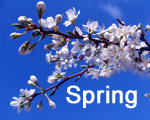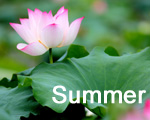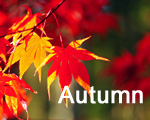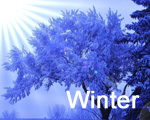|

TCM believes that springtime and the liver share the same property of mu (the element of wood). So, in that season, the liver tends to get overactive, creating discomfort.
The stomach and spleen share the properties of tu (the element of earth), which is the opposite of mu. If opposition between these two elements becomes too strong, the body will become uncomfortable. >>
|

In traditional Chinese medicine, summer is a time when "Yang energy" predominates so we should nourish and strengthen Yin to stay balanced.
With this understanding of food energy, there are a number of food choices we can make to cool down our over-heated bodies in summer. Raw foods, cold foods and drinks have more of a cooling effect than cooked foods. >>
|
|

A defining feature of autumn is dryness, which is most likely to affect the lungs and respiratory tract. "It is critical for the body to have enough water."
In autumn, people tend to be unaware of the fact that they are losing water quickly, since they don't actually sweat. But, in fact, the dry air will cause water to evaporate from the body 24 hours through the pores, unnoticed. >>
|

Winter is a time to take good care of the yang aspect of the body," says Wang Yuntao, a traditional Chinese medicine doctor with Beijing Dongwen Clinic.
The function of yang can be compared to a cup of hot water: Inside a warm environment, it stays warm longer; but inside a cold environment, it turns cold faster. The yang factor is the ability to keep warm, Wang explains. >>
|
